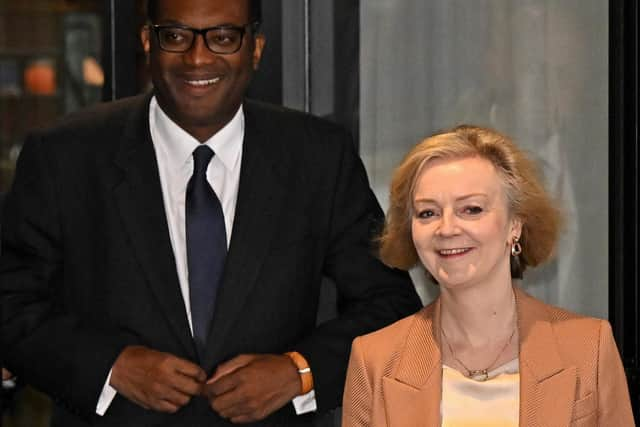Don't blame Liz Truss's Mini Budget for interest rate hikes, says former Boris Johnson business adviser
James Sproule, chief economist for Handelsbanken, said he believes a further 0.25 per cent rate rise will be ordered by the Bank of England this month but that rates will then remain at a peak of 5.5 per cent for several months before gradually reducing.
Mr Sproule, a former business adviser to Boris Johnson when he was Prime Minister and who has also previously worked for the Institute of Directors and the right-wing Legatum Institute thinktank, was in Leeds this week to meet with regional Handelsbanken clients.
Advertisement
Hide AdAdvertisement
Hide AdHe told The Yorkshire Post that “almost nothing” about the persistent interest rate rises of the last year could be attributed to the Mini-Budget of September 2022.


At the point of the Mini-Budget, interest rates were 2.25 per cent but before then had been rising repeatedly since December 2021 when they had been at 0.1 per cent.
Mr Sproule said global factors were a more important factor than the financial announcements produced by Ms Truss and her Chancellor Kwasi Kwarteng that resulted in the rapid downfall of their administration.
“There’s no way the Liz Truss government had an effect on what the Federal Reserve or the European Central Bank were doing,” he said.
Advertisement
Hide AdAdvertisement
Hide Ad“They clearly had been both putting up rates and we had pretty much been in lockstep with two big central banks.
“There was clearly some disruption at the time but it pretty quickly faded down.
“People were very afraid of where gilt rates went to under Truss and Kwarteng but they are there now anyway. They spiked up, fell back down and then we along with everybody else went back to the same place.”
He said the fallout from the Mini Budget has changed political calculations.
“I think there’s more caution in the UK from making big radical changes and that’s something any Government is going to have to tackle and cope with.”